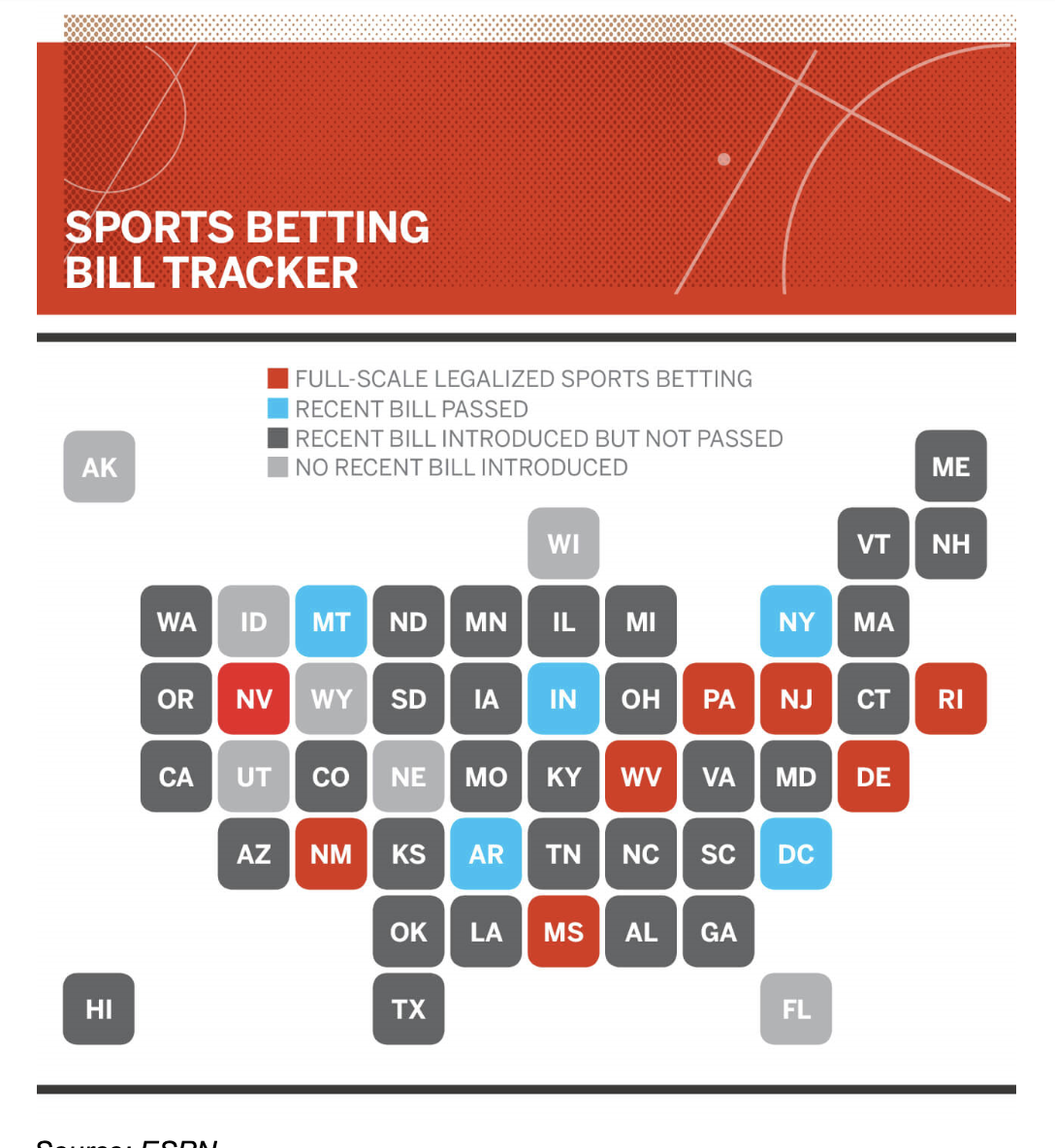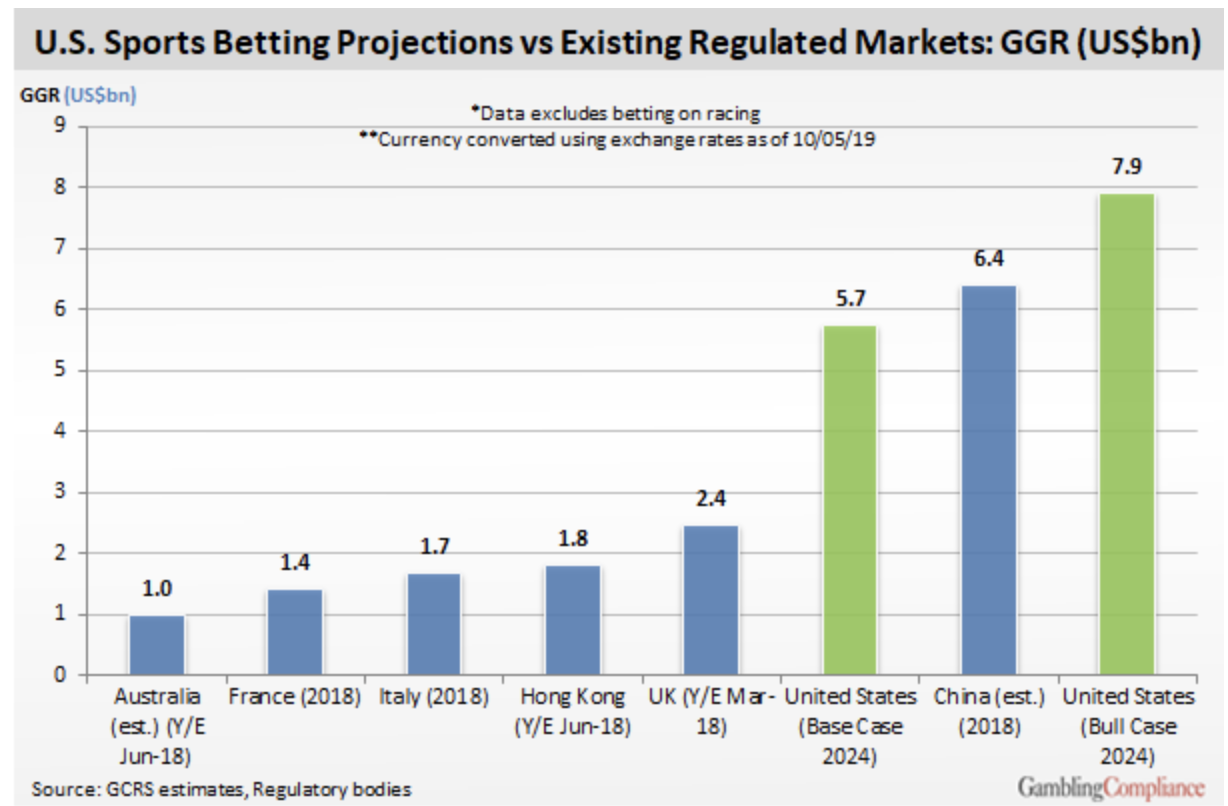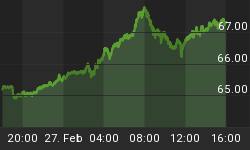A year on from the Supreme Court's ruling on sports betting, U.S. states have seen a bit of wind in their sails when it comes to profiting off of a legalized online sports betting industry that could theoretically be a $150 billion market--if only there weren’t electronic borders. It should be a betting bonanza, but with each state having its own set of rules and regulations, it’s more complicated than not for sports enthusiasts to place their bets across America.
That’s why we haven’t seen a rush of millionaire-minting in this segment.
It’s an incredibly tempting market, but gambling companies will find it limited for many years to come. That also means that it remains dominated by the illegal and gray markets.
“Gambling is still dominated by an illegal grey-and-black market, whether with local bookies or offshore operators, that have been in place for a very long time. In a regulated, consumer-protected business, we’re very optimistic that we can actively displace that as more responsible actors,” Mike Raffensperger, chief marketing officer of FanDuel, told CNBC.
According to the American Gaming Association, Americans illegally gamble at least $150 billion on sports in a year using bookies, illegal offshore websites and informal sports pools. Another $5 billion came about in 2018 legally from Nevada.
The disconnect on this among states also means there is no clear market leader.
Related: Beijing Backlash: Stocks Slammed, Gold Boosted
Speaking to CNBC, Richard Carter, CEO of SBTech, said: "There is no doubt both FanDuel and DraftKings will have large market share. But different states will have different market leaders. You need market access. Some states will be lottery-only. Some states will be limited to tribal gaming. Some states won't allow FanDuel and DraftKings to use their brands. They'll have to use the casino brand. There are lots of nuances. You have to take each state as it comes."
Legalization isn’t the end-all hear. It’s just half-time, and the half-time show is about licensings and operations, with New Jersey still the only state that has any serious competition for operational legalized sports begging. There, FanDuel and DraftKings have secured over 80 percent the state market share.
For now, sports gambling is only legal in eight states.

(Click to enlarge)
Source: ESPN
According to Patrick Keane, CEO of the Action Network, a research and analytics company dedicated to sports gambling, 15 states should move to legalize sports gambling by the end of this year, and another 30 should follow suit by 2020, CNBC reported.
Gambling Compliance has a wider scenario: It suggests that the U.S. market for legal sports betting will reach $5.7 billion in annual revenue and spread to 34 states by 2024. Less cautiously and more optimistically, the prediction suggests that market could grow to $7.9 billion and encompass 40 states by 2024.

(Click to enlarge)
Source: Gambling Compliance
Nor is the future of this industry likely to be about casinos. Betting is moving to smartphones.
Gambling Compliance predicts that the U.S. will be established as the second-largest regulated sports-betting market in the world, after China, even without legalization in California, Florida or Texas, which have all rendered the process more complicated and political.
The news flow, though, is picking up speed.
Last week, Indiana hinted that it was moving in the legalized sports betting direction, with state authorities expressing an interest in tapping into this market.
At the same time, Fox Corp.’s FOX Sports and Canadian company Stars Group Inc. announced plans to launch FOX Bet, a mobile betting app for people in states where mobile betting is legal.
But for the present, it’s only New Jersey and Nevada where mobile sports betting is a clear and lucrative reality, but don’t try to cross state lines with your app and get stuck with a bad bet you made in New Jersey while out on the town in Manhattan. You won’t be able to take it back.
By Michael Kern for Safehaven.com
More Top Reads From Safehaven.com:
















